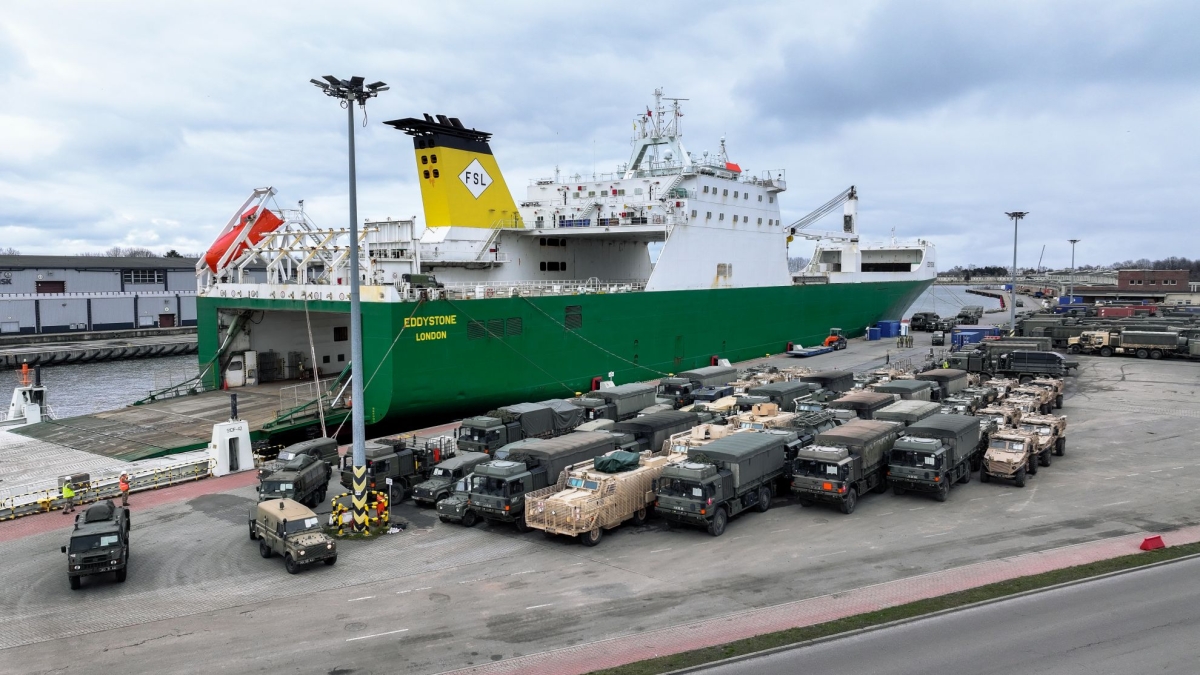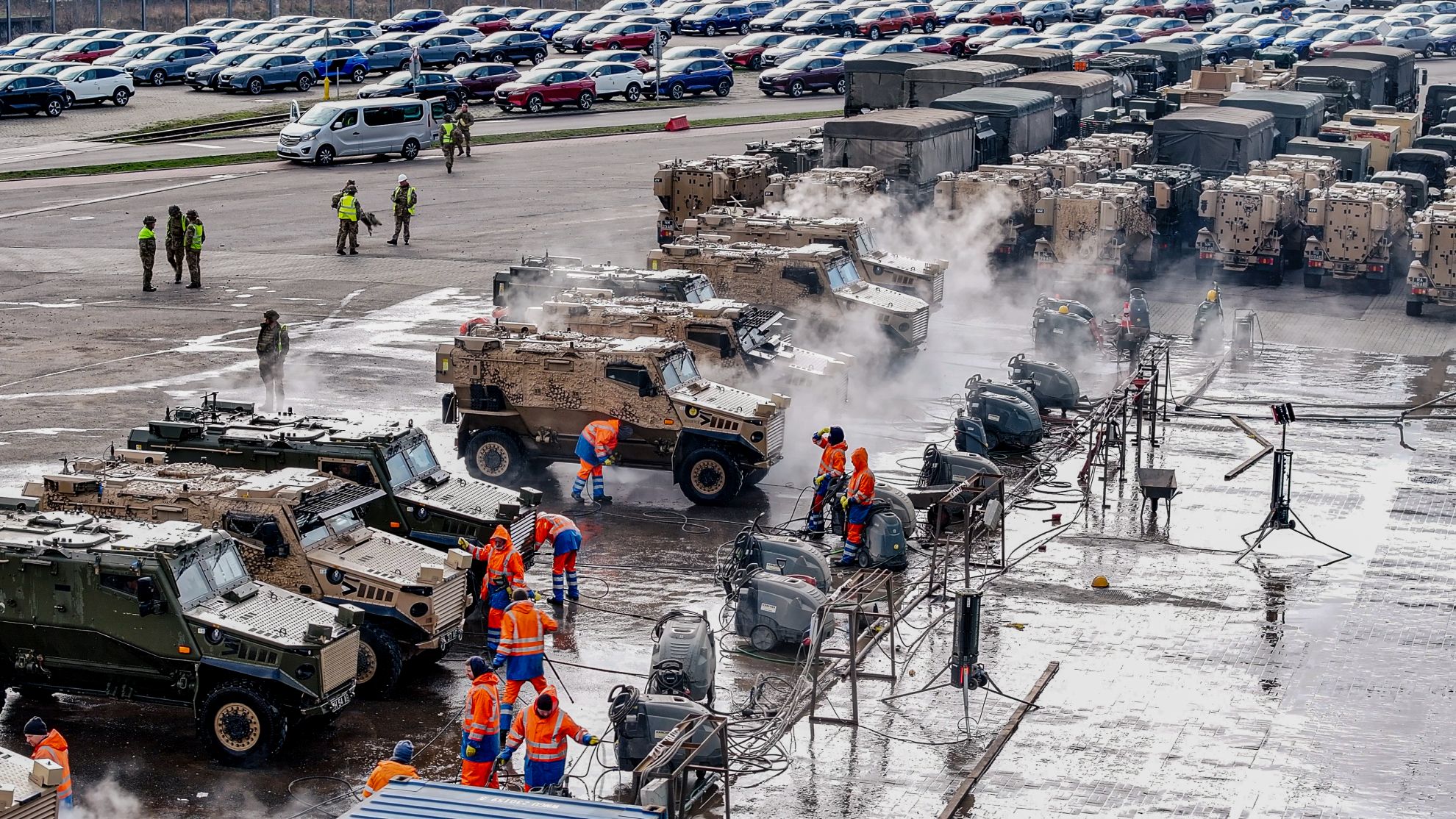
In March, 700 British Army vehicles and 650
soldiers returning from NATO exercises were stationed in the Free
Zone in the Port of Gdańsk.
This
year's NATO military exercise Steadfast Defender 2024 is the largest
exercise of this type since the Cold War. In total, between 22
January and 31 May, 90,000 soldiers are taking part in many
countries. A large part of them - around 20,000 - are soldiers of the
British Army. The British 7th Light Mechanised Brigade Combat
Team exercised in Poland. The
soldiers returned to the UK by plane, but their equipment sailed from
the Port of Gdańsk.
In March this year, British
Army military vehicles systematically arrived in the Free Zone in the
Port of Gdańsk, where they were looked after by the staff of BLG
AutoTerminal Gdańsk. In total, around 700 of them were parked on the
terminal apron. Over the course of a dozen or so days, they were
systematically washed by BLG personnel and prepared for departure to
Great Britain. On Monday, March 18, the first of two ro-ro ships
tasked with transporting equipment back to Great Britain, the
Eddystone, arrived at the terminal. The second vessel, Hartland
Point, arrived in Gdańsk three days later. Both ships are sister
ro-ro units, 193 metres long, in service since 2002. They are not
owned by the Royal Army – they are operated by a private company,
but are constantly used by the army. The transport was organised by a
unit of 104 Theatre Sustainment Brigade commanded by General Simon
Smith – 17 Port and Maritime Regiment,, which in turn is commanded
by Lieutenant Colonel Terry Wilcox. This was done in coordination
with partners in Poland, including BLG AutoTerminal Gdańsk.
–
The 700 British Army vehicles that are behind me will soon be loaded
onto the ship. They are ready to re-deploy to the UK after part of
the Steadfast Defender exercise – Brigadier General Simon Smith
told Gospodarka Morska just before the start of the loading. – This
part of the exercise has been called Brilliant Jump. It is part of a
wider NATO exercise involving 90,000 soldiers from the army, air
force and navy – said Gen. Smith, adding that the British trained
in various locations in Poland, including Drawsko Pomorskie. The aim
was to develop interoperability procedures with NATO allies.
–
Most importantly, it is about developing relationships between us and
our NATO allies – the opportunity to work together and train
together to build friendships and relationships that we will need if
we are ever called into action – added Lieutenant Colonel Terry
Wilcox, commanding officer, 17 Port and Maritime Regiment.
Lieutenant Colonel Terry
Wilcox explained that most of the 650 soldiers taking part in the
exercise had flown out of Gdańsk earlier. On site, in a camp built
for the occasion in the port, there were other commanders and
personnel dealing strictly with vehicles and their transport.

– Every driver has to be
specially trained to operate this equipment. Learning to drive these
vehicles takes ages. Drivers must first obtain a British driving
license, appropriate for the type and class of vehicle, then undergo
specialist driver training – said Wilcox. The British soldiers also
found time to familiarize themselves with the city. – We really
like Gdańsk. It's a beautiful city and very important from a
historical point of view. We visited Westerplatte, there is also an
amazing Museum of the Second World War, which I visited. We don't
really learn about World War II from a Polish perspective, so it was
really educational – said Terry Wilcox.


